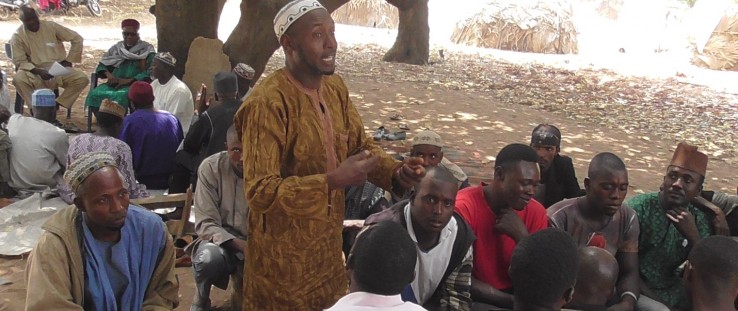 Osaka Sansui, a farmer living in the Ardor Siding community in central Nasarawa state, speaks at a USAID-conducted peace dialogue, one of dozens held in Nigeria to promote understanding and reduce bias between farmers and herders.
USAID/The Search for Common Ground
Osaka Sansui, a farmer living in the Ardor Siding community in central Nasarawa state, speaks at a USAID-conducted peace dialogue, one of dozens held in Nigeria to promote understanding and reduce bias between farmers and herders.
USAID/The Search for Common Ground
 Osaka Sansui, a farmer living in the Ardor Siding community in central Nasarawa state, speaks at a USAID-conducted peace dialogue, one of dozens held in Nigeria to promote understanding and reduce bias between farmers and herders.
USAID/The Search for Common Ground
Osaka Sansui, a farmer living in the Ardor Siding community in central Nasarawa state, speaks at a USAID-conducted peace dialogue, one of dozens held in Nigeria to promote understanding and reduce bias between farmers and herders.
USAID/The Search for Common Ground
Nigeria’s farmers and semi-nomadic cattle herdsmen historically have had a symbiotic relationship. Herds grazed on crop remnants, then added manure to fallow fields.Once-powerful traditional leaders resolved any disputes with incontrovertible decrees.
But over the last few decades, extraordinary population growth and weather shocks have led to radically smaller amounts of grazing pastures and sources of water, challenging the age-old way of life.
More land is being reserved for farming and infrastructure projects. Add to that the country’s burgeoning population, shrinking oil economy, proliferation of arms coming from Libya and other conflict-states in the Sahel, and the rise of cattle rustling in the agricultural heartland. The result: increased levels of conflict over the past decade.
These conflicts impede market development and economic growth by destroying assets, preventing trade, deterring investment and eroding trust between market actors.
More than 4,000 deaths have been linked to disputes between herdsman and farmers in the last year alone. In addition to the loss of human life, the conflicts also take an enormous toll on the economic health of families and households. Analysis by USAID partner Mercy Corps indicates Nigeria stands to gain up to $13.7 billion annually in four states alone if there is peace between farmers and pastoralists.
In 2014, USAID began supporting a series of local peace dialogues in targeted communities aimed at reducing misconceptions and increasing intercultural understanding.
USAID convened discussions in dozens of communities that helped villagers on both sides of the conflict understand that respect and dialogue can lead to conflict resolution. And programming on community radio and television helped educate these largely rural populations on the larger issues driving the conflict.
“Conflict between farmers and herders has been going on since the beginning of time,” said Felicia Genet, USAID’s conflict mitigation officer in Nigeria. “The difference today is the detrimental effects of climate change on water and availability of forage crops for grazing. Coupled with urbanization and population growth, that has put even more pressure on these communities. [There’s a need for] a modernized traditional system of resolution that focuses on inclusivity and consensus. We hope to scale up the system to cover additional affected communities.”
Ending the Violence
Disputes typically begin when traditional grazing routes are no longer recognized. As a result, herds of cattle, often tended by young boys, trample fields of the farms’ crops. In retribution, people are attacked and the herds, which are essentially currency in the herdsmen’s Fulani culture, are shot or poisoned by farmers. In retaliation, whole villages are burned and people are murdered.
Neither farmers nor herdsmen come out ahead, with both communities living their lives in fear and watching their livelihoods destroyed.
Now, some communities have agreed that all farmers must reserve 5 feet of land around the perimeter of their fields, creating 10 feet of space for cattle routes between the perimeters of all farms without damaging any crops.
Community members say this helps prevent farm encroachment and the destruction of crops. In the event crops are destroyed, village leaders have re-established a more inclusive and transparent system of arbitration and fines for people who violate the agreement.
The farmer and herder would first meet to try to reach an agreement over compensation. If none could be reached, cases would be referred to a committee composed of both farmers and herders, who assess the damage and recommend a sum to be paid, mitigating resentment over arbitrary fines by village chiefs.
“Since we came to this agreement in February, there have been no attacks or violence between farmers and herders,” said Osaka Sansui, a farmer living in the Ardor Siding community in central Nasarawa state. “This is a critical first step in improving the relationship between farmers and herders, an example of how peace can return to the area.”
The numbers back him up. Since the new protocol began, violence has gone down in communities supported by USAID. A violence incidence tracking system that collected information from 20 communities also showed that violence stemming from farmer-herder conflict fell by an average of 27.4 percent in the last year.
Taking the Fight National
Now two of the largest groups in the nation that represent the two adversaries—the Miyetti Allah Cattle Breeders’ Association of Nigeria and the All Farmers Association of Nigeria—are joining farmers and herders, as well as religious, regional and ethnic leaders from 16 of Nigeria’s 36 states to take USAID’s conflict resolution efforts nationwide.
At a meeting USAID helped arrange, all sides agreed that the conflict is undermining Nigeria’s unity, prosperity and even national security. And they want the federal government to act.
“All tiers of government should give practical effect to the provisions of the constitution regarding rights and responsibilities of citizens and give it priority over any other consideration,” said retired Brig. Gen. Saleh Bala, special adviser to the minister of the interior. “Nigerians should demand accountability and good governance from their leaders as opposed to the politics of bitterness and bickering.”
Ardo Mahmud Adam, a leader of herders in the Riyom area of Plateau state in the center of the country, said no less than the survival of the nation is at stake regarding resolution of the conflict.
“The more we work together, the more we cooperate, the better for Nigeria,” he said in the Hausa tongue. “I will use my position to support these [recommendations], but this conference should not be the last one. We need to have continuous dialogue so that, when the inevitable conflict arises, we can resolve it without violence.”
Peace Rabi, chairperson of the All Farmers Association in Kogi state, said she plans to do just that shortly after returning home. “We are going to bring together both our groups with our local officials to promote better understanding between our two groups,” she said.









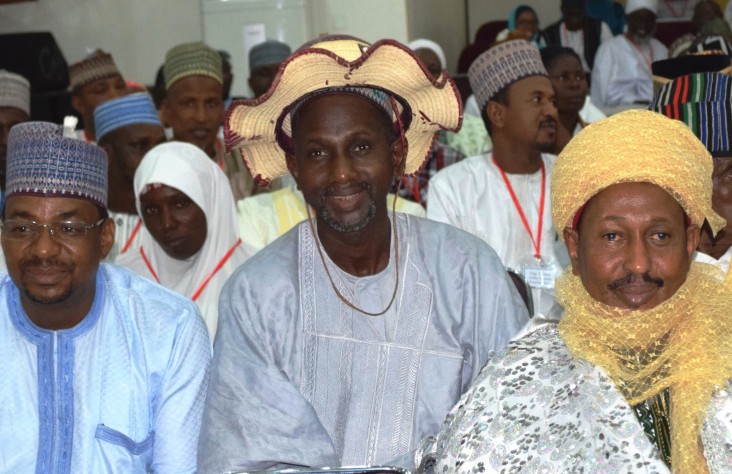
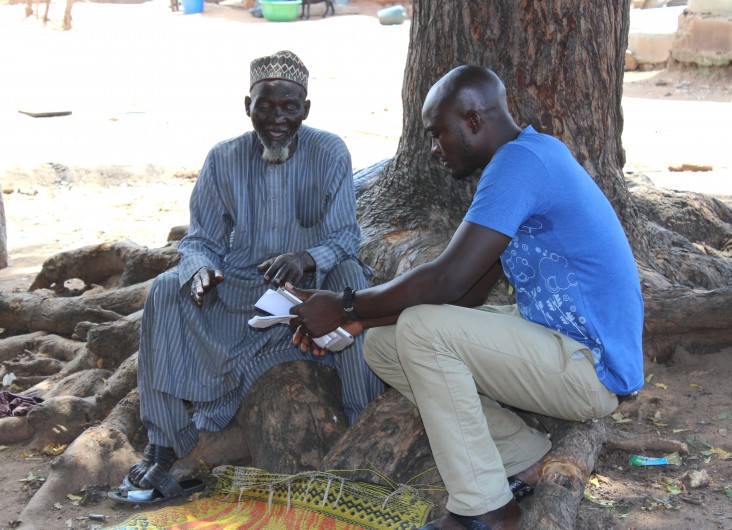
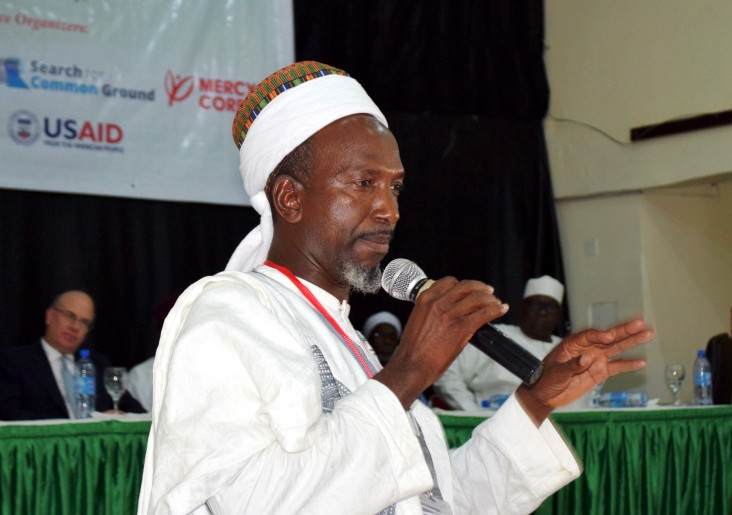
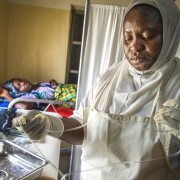


Comment
Make a general inquiry or suggest an improvement.